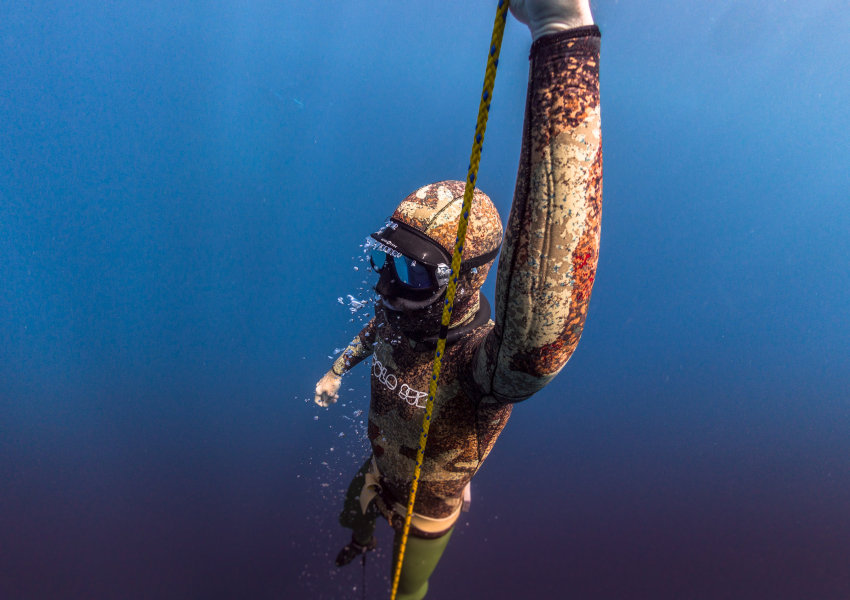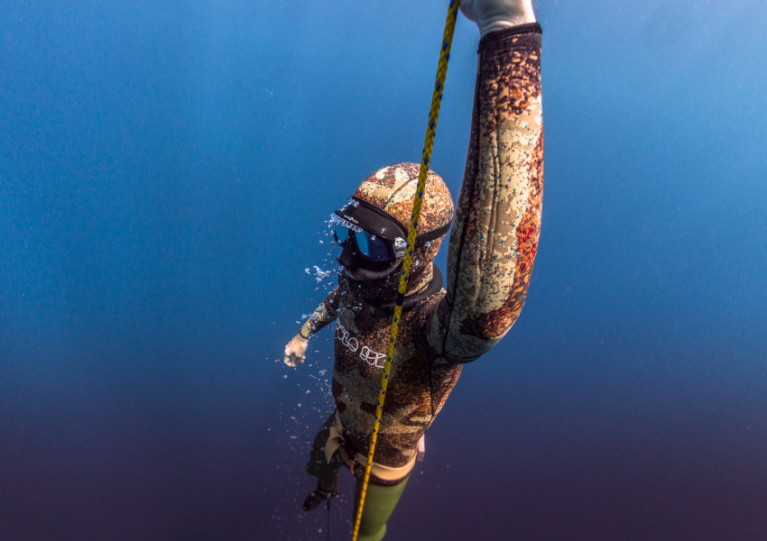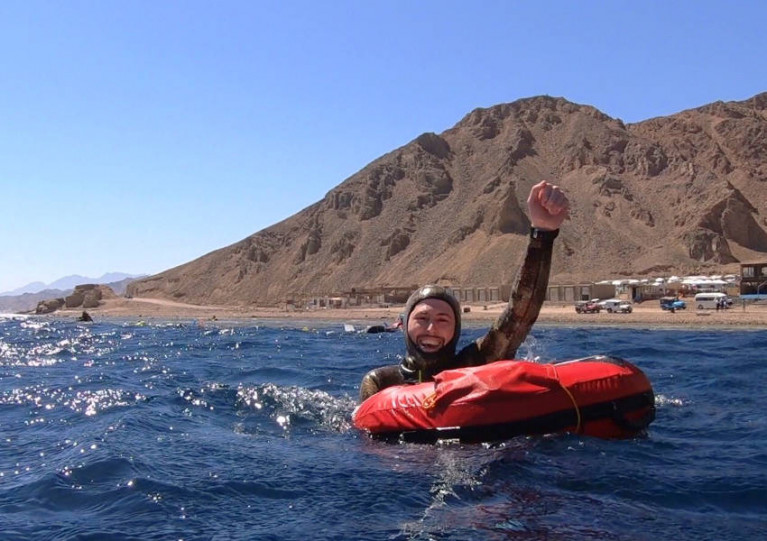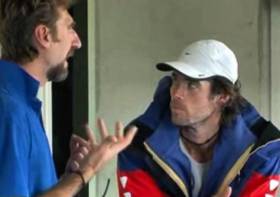Displaying items by tag: Dave McGowan
Irish Free Diver Plans Long Walk for Mental Health Charity
An Irish free diver in Egypt who last year sought public support for his competitive efforts is paying it forward with a plan to walk for 24 hours straight in aid of Pieta House.
Dave McGowan tells the Irish Examiner that his charitable challenge is just the latest in a series of adventures he’s been setting himself on his birthday each year.
This year he’s on his own in Dahab — where he’s based himself to train for the next level of international free diving competition, as previously reported on Afloat.ie.
But McGowan is well used to the solo rigours of long-distance cycling and running, as he comtemplates the 100km hike ahead this coming Thursday (4 February).
And mindful of the difficulties of the coronavirus pandemic affecting society both in Egypt and back home, the Mullingar man has selected a mental health charity for his fundraising efforts.
The Irish Examiner has more on the story HERE.
Irish Free Diver Appeals For Backing To Reach The Next Level
One of Ireland’s top free divers is appealing for public support to step up to the next level of competition.
Dave McGowan has been living and training in Dahab, Egypt since the start of the coronavirus crisis, and has made the most of his time to improve his dive distance to over 70 metres on a single breath — smashing the Irish record in the new bi-fins category.
It’s been a big boost of confidence for the Mullingar native who was unable to compete at last year’s Depth World Championships in the south of France due to a lack of funding.
Ireland was represented at that event by Claire Walsh, the first Irish woman to compete at that level and a record-breaker in her own right.
McGowan hopes to gradually improve his remarkable resuilys over the next few months, allowing his body to adjust to the immense pressures, in order to take on the all-time Irish depth record and confirm him as the deepest Irish free diver in active competition.

And he hopes to make his mark in local contests along the way, with the free diving season kicking off next month at the AIDA Bassam Arabian Freediving Depth Championship.
“I’m delighted with how my training has been going so far this year; however, my training and competition plans for the rest of 2020 and into 2021 are uncertain right now in the wake of the coronavirus crisis,” says McGowan.
“But it is hoped that by autumn 2021 it will be a distant memory and the next AIDA Depth World Championships can go ahead. It will be an incredible honour to represent Ireland at this event and even more to do so as part of a team.”
McGowan is looking to connect with any potential sponsors to help with his future record attempts, and has also set up a GoFundMe for anyone that wishes to help contribute to the costs of his training, equipment and competition fees.
David McGowan Chosen as New Ireland Heavyweight Coach
#Rowing: David McGowan from Australia will be the new Ireland heavyweight coach. As an athlete he competed in the Australia four which finished fourth in the Olympic Games in Athens in 2004. As a coach he had a successful run in the Netherlands. He coached the lightweight eight to gold at the World Championships in 2007, then took the men’s heavyweight eight through the Olympic Qualifiers in 2008 and they went on to the Beijing Olympic Games. He coached with Nereus, the famed student club from Amsterdam and in Sweden. Most recently, he was appointed head coach at Swan River Rowing Club in Perth in Australia.
He will take up his post next month and will be expected to create a pathway for Irish rowers from junior and university levels on to the Ireland high performance system.
In a statement from Rowing Ireland, McGowan said: “I feel privileged to have been offered this opportunity in such an exciting time for Irish rowing. I look forward to both working with Rowing Ireland and rowing in Ireland and I am excited to be joining the team shortly.”
Rowing Ireland chief executive, Hamish Adams, added: “We are delighted to have secured the services of an experienced international coach like David and I believe he will deliver real value to our heavyweight programme across the island of Ireland. Development of the heavyweight category offers a great opportunity to us as a rowing nation and we feel it is important to engage with all our stakeholders to deliver on our potential in this area.”































































